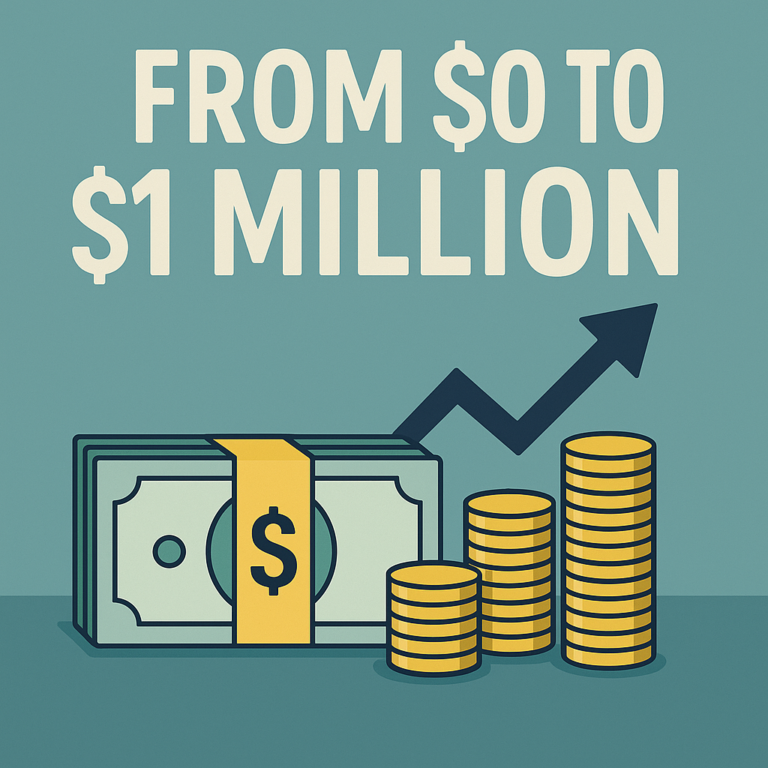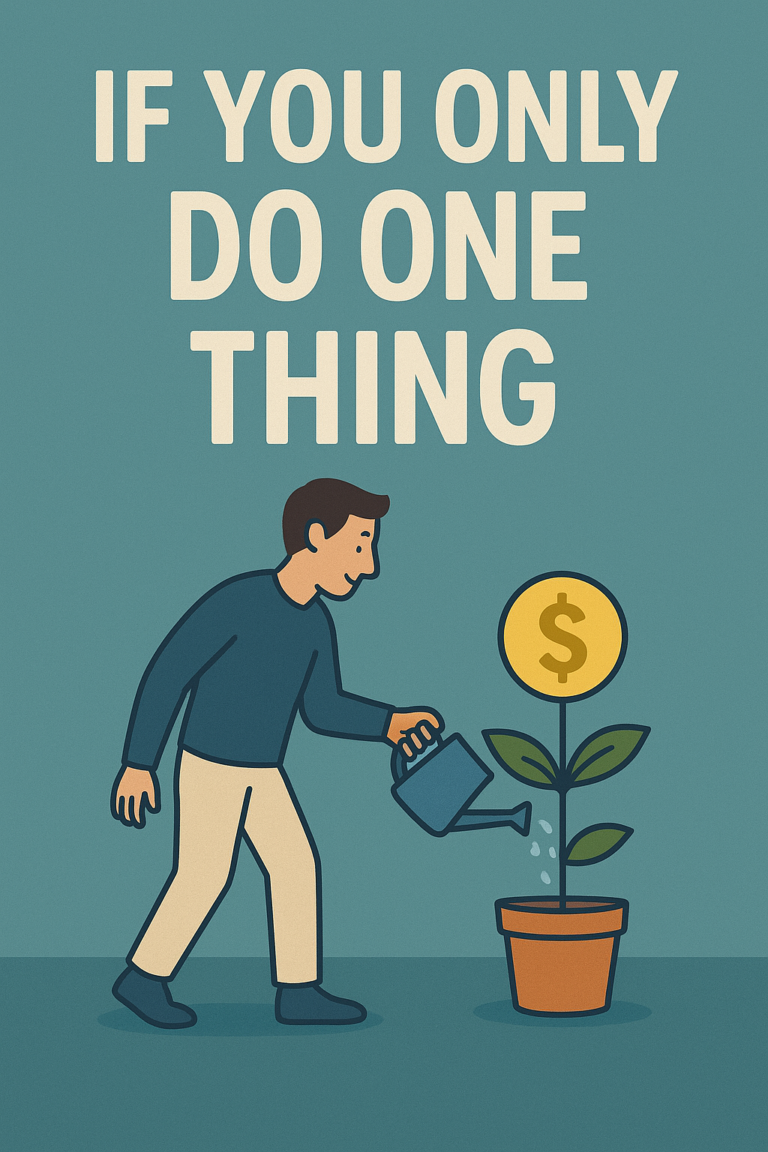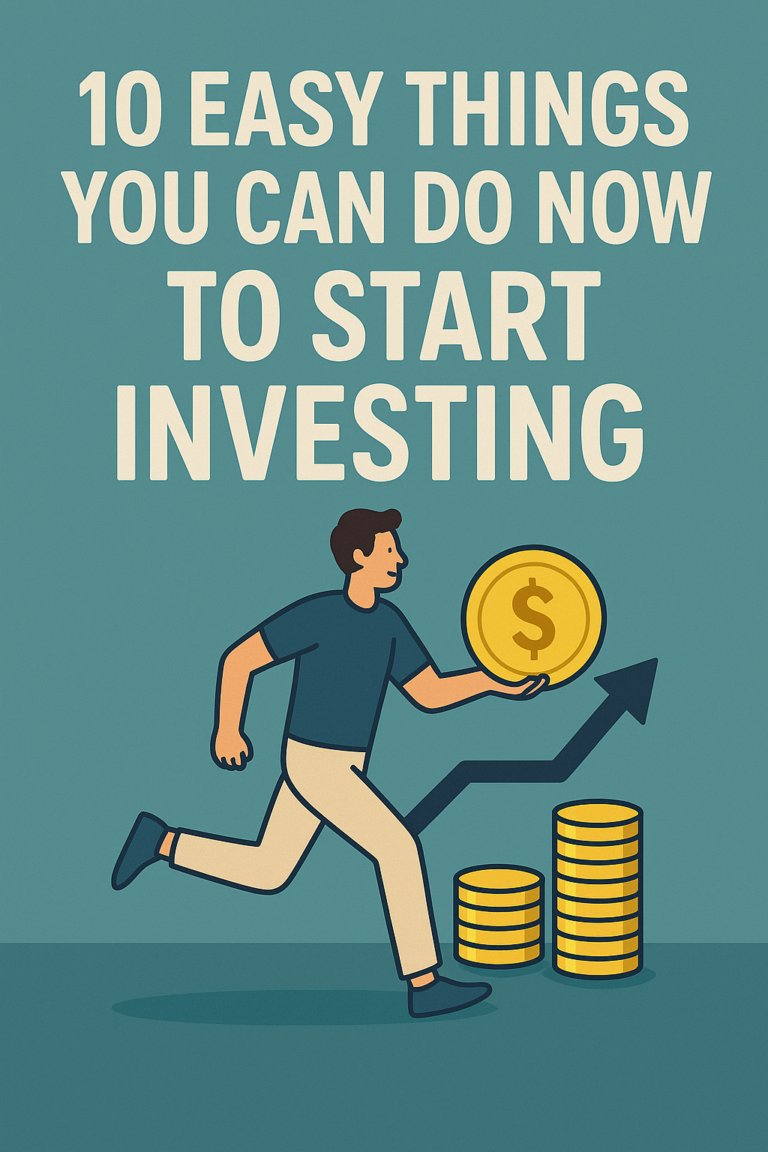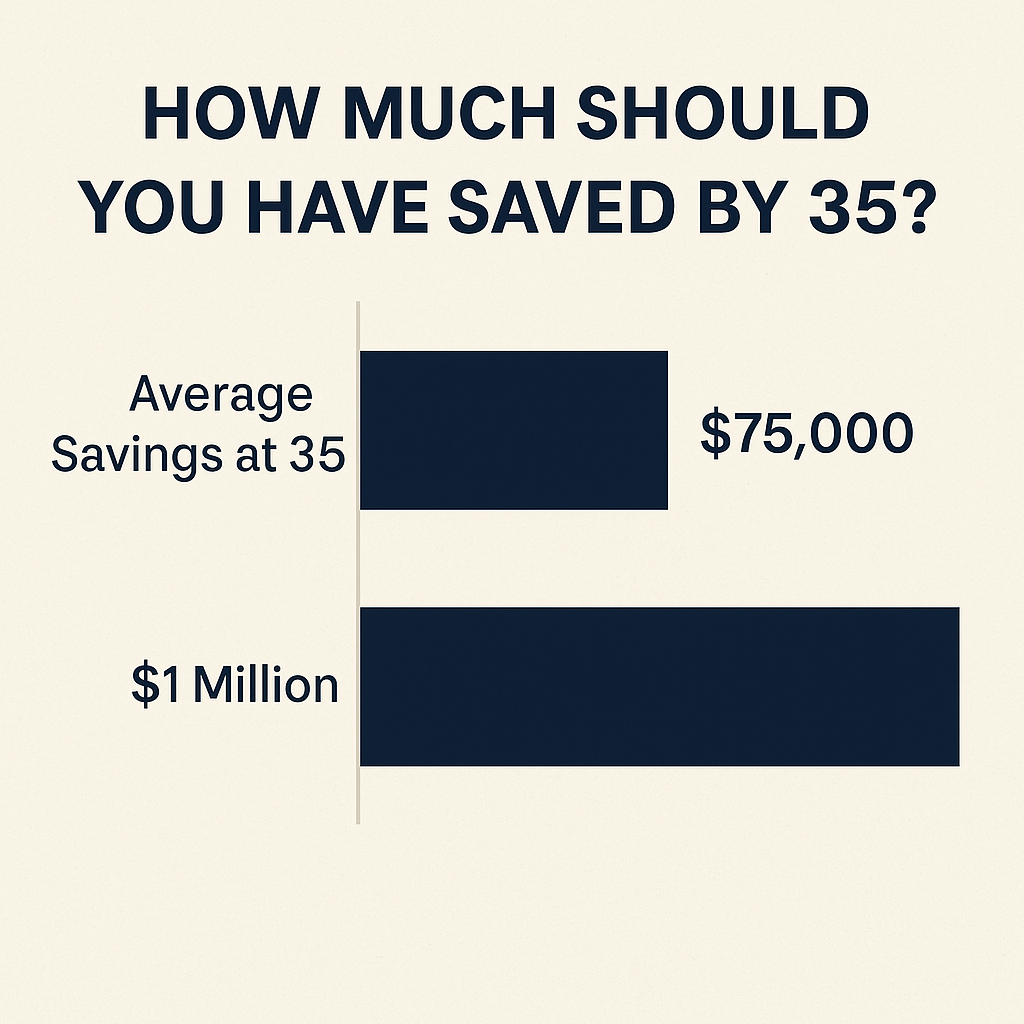How Much Should You Save at 35? (Here’s What I Did)
The Short Answer: It Depends. But Let Me Tell You What Worked for Me.
When I turned 35, I had just crossed a major milestone: $1 million in net worth.
That might sound extreme. And honestly? It still feels surreal to say out loud. I didn’t grow up wealthy. I didn’t work in finance. My first job after college paid $15 an hour. I paid for school by working two jobs and taking out student loans.
So if you’re wondering, “How much should I have saved by 35?” — I get it. You’re not alone. And I want to break this question down in a way that’s practical, realistic, and encouraging.
The Typical Benchmarks (According to Experts)
Let’s start with the numbers. Here’s what major financial institutions say:
- Fidelity recommends having 2x your annual salary saved by age 35.
- T. Rowe Price suggests saving 15% of your income consistently from your 20s.
- The average net worth of 35-year-olds in the U.S. is about $76,000 (Federal Reserve, 2022).
- The median? Much lower — around $13,900.
But averages can be misleading. If you’re just getting started or behind, those numbers might feel either discouraging or completely out of reach. The truth is: what matters most is your savings rate and consistency — not hitting someone else’s number.
My Path: From $0 to $1 Million by 35
Here’s how I actually did it — not in theory, but in real life:
- Started with a budget. I tracked every dollar I earned and spent.
- Lived below my means — even when I got raises.
- Invested early, starting with just $100/month into a total market ETF.
- Maxed out my 401(k) every year, no matter what.
- Bought real estate when I could — including a rental property that now pays me monthly.
- Avoided lifestyle creep. My spending didn’t rise with my income.
- Stayed consistent, even during market downturns.
So, How Much Should You Have Saved by 35?
Here’s my honest take:
Don’t obsess over a specific number. Focus on the direction you’re heading.
That said, some helpful milestones to aim for might be:
- ✅ At least 1x your annual salary in total savings and investments
- ✅ A 401(k) or IRA you contribute to regularly
- ✅ No high-interest debt (especially credit cards)
- ✅ An emergency fund with 3–6 months of expenses
- ✅ A plan for growing wealth, not just saving it
If you’ve already got those, you’re ahead of most. If you don’t yet — that’s okay. You’re reading this post, which means you care. That’s the first step.
The Mindset That Helped Me Most
At 30, I was living in a high cost-of-living city. My first child had just been born. That flipped a switch for me.
I stopped spending money on stuff I didn’t care about and started thinking long-term: family, freedom, flexibility. That mindset made it easier to save — not harder.
If you’re 35 and feeling behind, remember: you’re not late. You’re right on time to change your future. Start small, be consistent, and stay focused on what matters most to you.
Want Help Getting Started?
Check out some of these beginner-friendly posts next:
- If You Only Do One Thing — Invest $100 In a Total Market ETF
- What to Do With Your First $10,000 in Savings
- 10 Easy Things You Can Do Right Now to Start Investing

From $0 to $1 Million by 35: A Simple Wealth-Building Strategy
TL/DR: I worked hard to steadily increase my income over time until I could save half of it every month…

If You Only Do One Thing — Invest $100 In a Total Stock Market ETF
If you’re feeling overwhelmed about investing and don’t know where to start, let me make it dead simple: Open a…

10 Easy Things You Can Do Right Now To Start Investing
You don’t need a finance degree or a trust fund to start investing—you just need a plan and a few…

What to Do With Your First $10,000 in Savings (Step-by-Step Guide for Beginners)
Hitting $10,000 in savings is a huge milestone. It means you’ve moved past living paycheck to paycheck. You have options…

Is It Too Late to Start Investing at 30? Not Even Close.
Spoiler: I started with nothing and still built a $1 million net worth by 35. If you’re in your late…
Is $5,000 a Good Salary?
If you’re earning $5,000 a month, you might be wondering: Is $5,000 a good salary?The short answer is — it depends on your…
Average Net Worth by Age 30 (And How to Beat It)
Wondering where you stand financially?Let’s talk about the average net worth by age 30 — and, more importantly, how you can blow past…
How to Invest $100 a Month (Even If You’re Just Getting Started)
Think you need a lot of money to start investing?Think again.Even $100 a month can build real wealth over time — if you…

What Is a Money Market Fund? (And When Should You Use One?)
If you’re just getting started with investing, you might have heard the term “money market fund” tossed around. It sounds a little…
